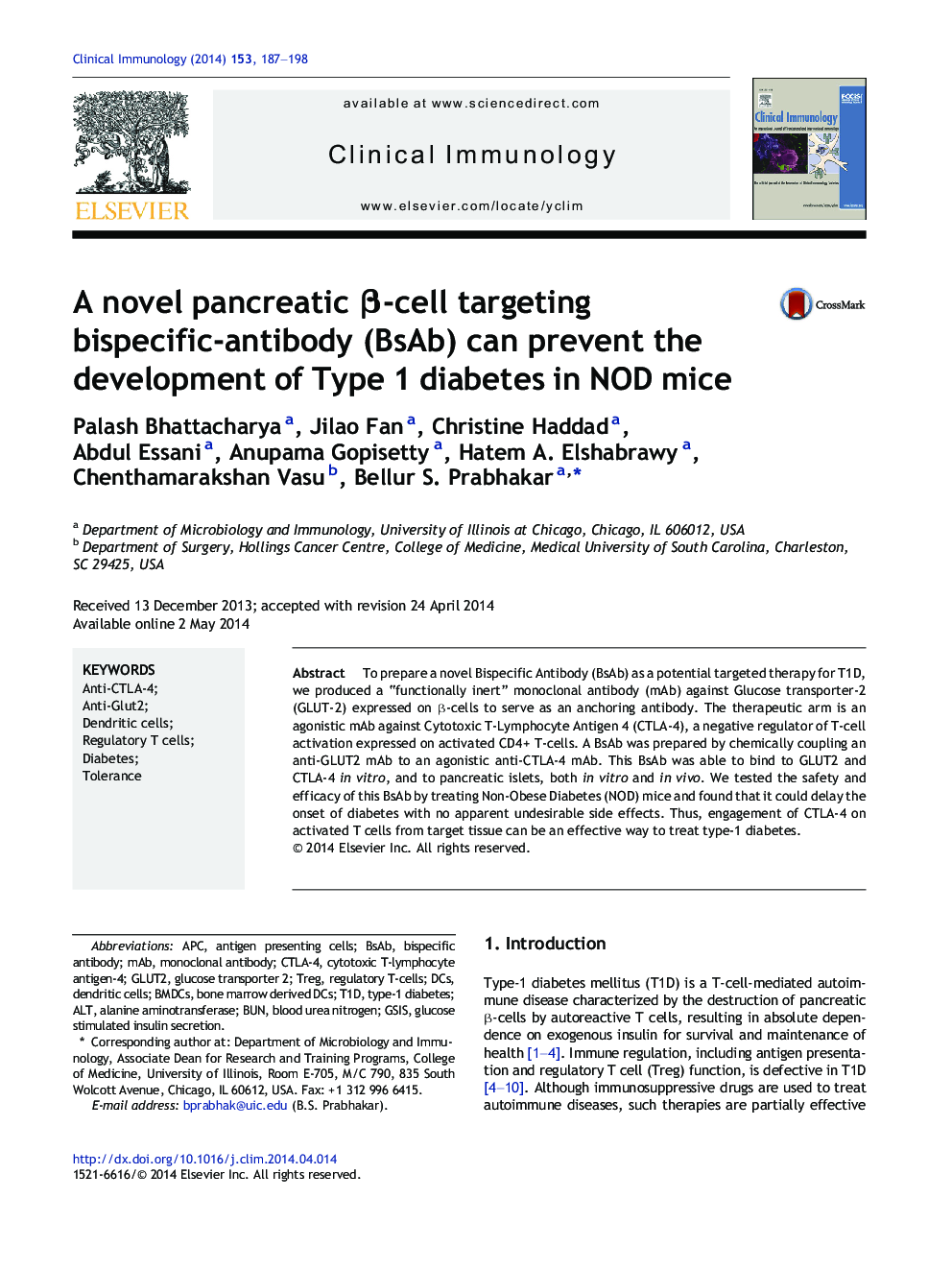| Article ID | Journal | Published Year | Pages | File Type |
|---|---|---|---|---|
| 6087477 | Clinical Immunology | 2014 | 12 Pages |
â¢We produced inert anti-GLUT2 mAbs that bound pancreatic β-cells in vitro.â¢We constructed a BsAb by chemically coupling an anti-CTLA-4 and an anti-GLUT mAb.â¢Upon injection into mice, BsAbs could bind to GLUT2 on pancreatic β-cells in vivo.â¢BsAb treatment did not adversely affect liver kidney or β-cell function.â¢BsAb treatment significantly delayed the onset of T1D in NOD mice.
To prepare a novel Bispecific Antibody (BsAb) as a potential targeted therapy for T1D, we produced a “functionally inert” monoclonal antibody (mAb) against Glucose transporter-2 (GLUT-2) expressed on β-cells to serve as an anchoring antibody. The therapeutic arm is an agonistic mAb against Cytotoxic T-Lymphocyte Antigen 4 (CTLA-4), a negative regulator of T-cell activation expressed on activated CD4 + T-cells. A BsAb was prepared by chemically coupling an anti-GLUT2 mAb to an agonistic anti-CTLA-4 mAb. This BsAb was able to bind to GLUT2 and CTLA-4 in vitro, and to pancreatic islets, both in vitro and in vivo. We tested the safety and efficacy of this BsAb by treating Non-Obese Diabetes (NOD) mice and found that it could delay the onset of diabetes with no apparent undesirable side effects. Thus, engagement of CTLA-4 on activated T cells from target tissue can be an effective way to treat type-1 diabetes.
